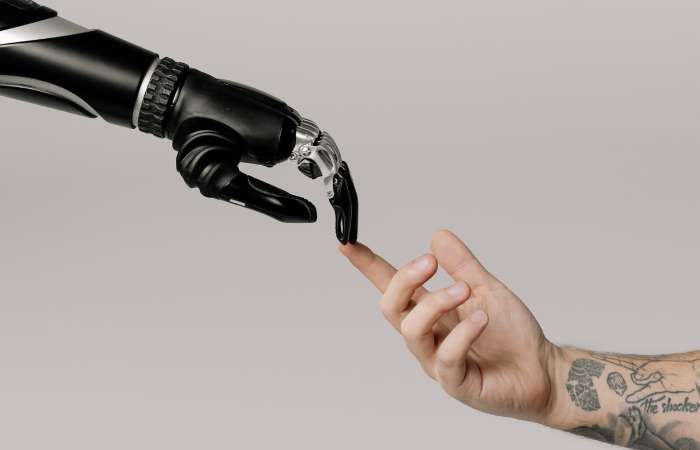Enter your email below to receive weekly updates from the Ashton College blog straight to your inbox.

AI in Addiction Treatment: AI is transforming healthcare, including addiction treatment. Addictions counsellors use AI tools to enhance accessibility, personalization, and effectiveness in care.
This blog explores three key areas of AI’s impact: chatbots and virtual assistants, remote monitoring, and virtual reality therapy.
AI chatbots and virtual assistants have emerged as powerful tools in the field of addiction treatment. These programs are designed to provide support to individuals seeking help, offering a unique blend of accessibility and anonymity. One prominent example is RAY, an AI-powered chatbot developed to assist individuals with addiction recovery. RAY engages users in conversations, providing empathetic responses, motivational support, and practical guidance. It uses natural language processing to adapt to individual needs, making the experience feel personalized.
By simulating human-like interactions, these chatbots create a safe space for users to express their feelings and seek advice without fear of stigma. Although chatbots cannot replace human counsellors, they effectively complement traditional therapy by bridging gaps between sessions and offering 24/7 assistance.
Virtual reality (VR) is another innovative application of AI in addiction treatment. By creating immersive, controlled environments, VR therapy allows individuals to confront and manage triggers in a safe setting. A blog- ‘Virtual reality helps with addiction treatment’ by Recovery Lighthouse discusses how VR helps individuals develop coping mechanisms and resilience. For example, a VR program might simulate a social gathering where alcohol is present, enabling the user to practice refusal skills and build confidence in resisting temptation. These simulations are guided by AI algorithms that adapt scenarios based on the user’s progress and emotional responses.
Beyond exposure therapy, VR can also be used for relaxation and mindfulness exercises, providing an engaging way to reduce stress and improve mental well-being. The interactive and immersive nature of VR therapy makes it a valuable tool in enhancing patient engagement and facilitating long-term recovery.

View All Comments